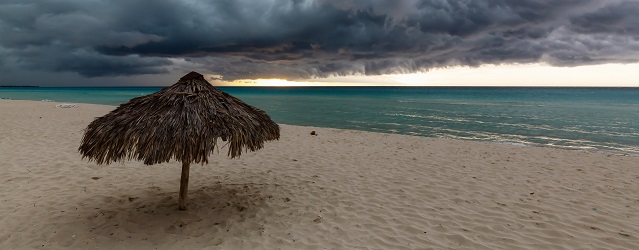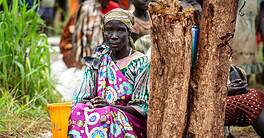Guyana’s oil bounty could benefit the whole region, but climate events threaten tourism.

The patchwork of more than a dozen countries that make up the Caribbean zone are more open for business than in the past and have seen their economic prospects improve, although they are still exposed to climate risks and other headwinds. The whole region—including Guyana and excluding Cuba, Haiti and the Dominican Republic—should enjoy 5.6% GDP growth in 2020, according to the UN Economic Commission for Latin America and the Caribbean (Eclac). This positive projection is due in considerable measure to the impressive 85.6% growth rate expected in Guyana as production kicks off on the largest crude oil discovery of recent years.
Guyana’s bounty could generate wealth for its neighbors as well through trade and other business. Exxon Mobil is already exploiting the Liza field, which has a capacity of 120,000 gross barrels per day (bpd) through the end of this year. Production from the Stabroek block is expected to achieve 750,000 gross bpd by 2025, when five floating production, storage and offloading facilities are slated to be fully online.
The transformation of this small country, which has been a gold producer, is anticipated to be huge. As an Amazonian country, Guyana is also engaged in environmental protection: a key requirement for new investments. “A green state will emphasize the preservation and protection of the environment and the promotion of renewable energy, ecotourism and value-added production,” President David Granger said last February.
Most of the Caribbean states, including Guyana, have implemented reforms making it simpler for medium and small domestic companies to do business, the World Bank notes. And while most of the region still needs to remove obstacles to entrepreneurship, Puerto Rico and Jamaica have made progress in this area. Most Caribbean states have undertaken tougher management of their public accounts, says Daniel Titelman, chief of Eclac’s Economic Development Division, and have reduced their public debt: a path he hopes they will continue on in the future.
However, the improved macroeconomic landscape must compete with the region’s main vulnerability: devastating natural events exacerbated by climate change, like the hurricane that devastated the Bahamas last year.
“The region’s exposure to climate risks continues to require strong policies,” says Alejandro Werner, director of the Western Hemisphere Department at the IMF, in the fund’s January Latin America and Caribbean regional outlook report.
Tourism is especially sensitive to climate events. The Caribbean Hotel and Tourism Association is expecting a profitable year, especially in countries that were affected by the disasters of 2017 and have since rebuilt and bolstered their infrastructure to withstand future storms. Antigua and Barbuda are projected to grow 6.5% and Grenada 4%.
But the Bahamas, still recovering from last September’s tragedy, will suffer negative 0.6% growth, according to Eclac. The Cuban economy, weakened by US bans reinstated in 2017 and implementation of Title III of the Helms-Burton Act, rendering foreign investment in the island risky, will grow only 0.5%. Cuba is also facing an oil shortage, as US sanctions against Venezuela have deprived the country of more than 50% of the fuel it needs.
Projections for the region’s commodities-exporting countries are not so dire: They at least will improve their growth performance over last year’s 2% drop. But with prices and demand for oil and gold going down, Suriname should grow just 1.7%, down from 2.1% in 2019.



